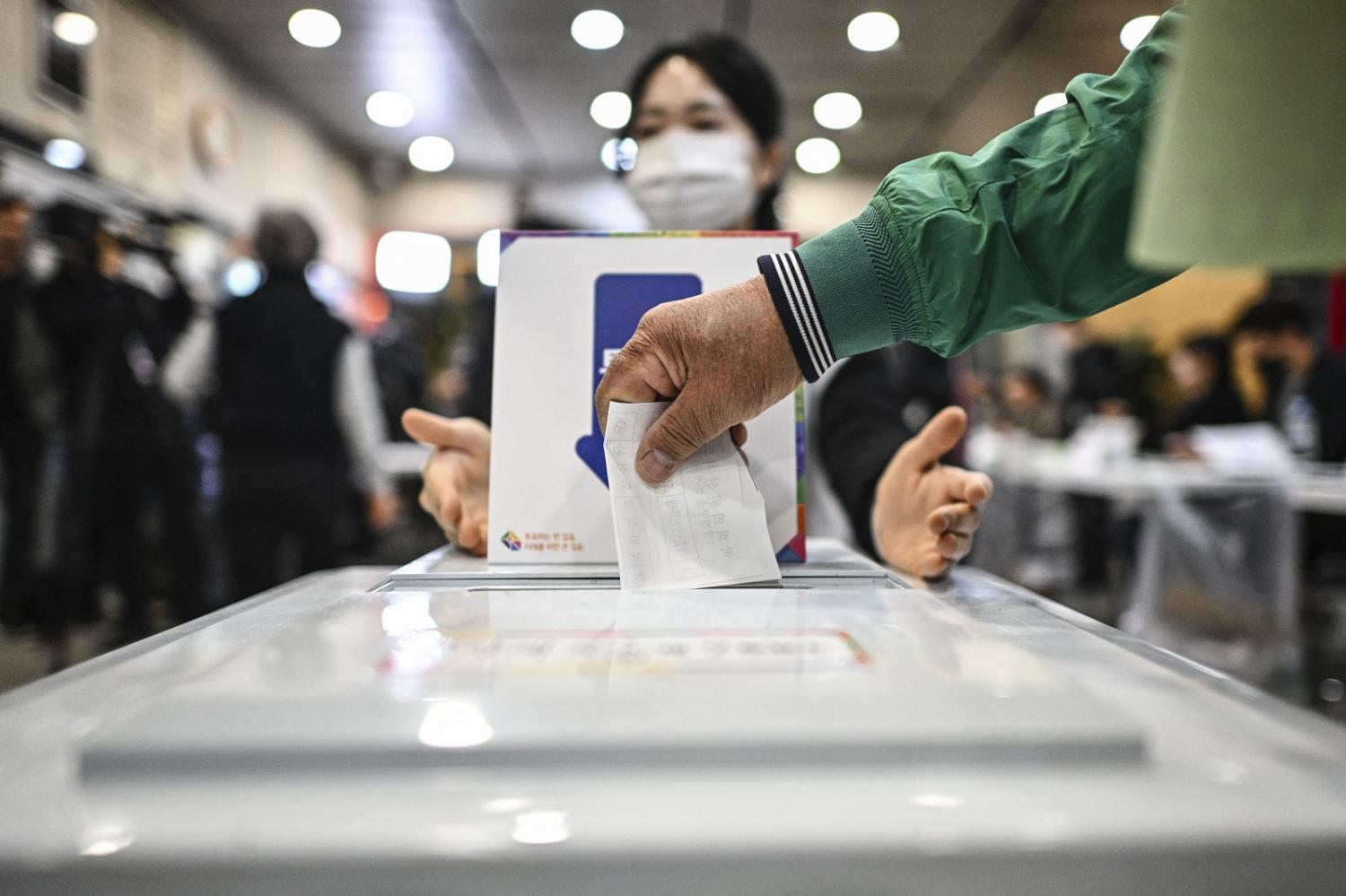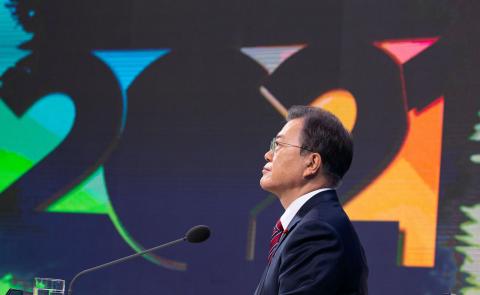When South Korea’s Yoon Suk-yeol administration released its Indo-Pacific Strategy in late 2022, many Australian commentators hoped the time had finally come for the Australia–South Korea bilateral relationship to prosper. After Yoon’s comprehensive trouncing in the recent legislative elections, it may be time to temper those hopes.
Foreign policy rarely plays a role in South Korea’s legislative elections. They are routinely decided upon political, economic and social issues closer to home. Upsets or landslides have resulted from embarrassing political faux pas, cases of spying on rival political parties, poor economic performance, and the mishandling of the economy and its resultant social impact. With the release of the Indo-Pacific strategy, foreign policy played a role for the first time in years. Between fumbled diplomatic appointments, repeated diplomatic gaffes, and poor foreign policy choices, presidential performance on the international stage contributed substantially to the legislative election outcome.
Yoon’s performance has been marked by a glaring gap between rhetoric and implementation: a president that nominally supports pro-US policies, but in practice is caught cursing US lawmakers on a hot mic; a president that nominally supports freedom, but in practice stumbles in support of Ukraine; a president that nominally stands for international norms and the rule of law, but in practice sparks a debate on securing nuclear weapons.
Yoon seems to say all the right things. His policy initiatives are liberal-internationalist word salads, replete with key terms of freedom, rule of law, democracy, prosperity, security and stability. They tick all the boxes of Western expectations, and eager pundits love it.
The country’s National Security Strategy and Indo-Pacific Strategy are perfect examples. Rhetorically, the two documents align South Korea with Japan, the United States, Australia and every other state that has its own Indo-Pacific strategy. In implementation, they are barely even national strategies.
Foreign and strategic policy documents in Australia are prepared by the (hopefully) non-partisan public service within the guidelines of the executive (prime ministerial office). There is a broad understanding that where possible, consultation with the opposition takes place to ensure a degree of broad bipartisanship with the understanding that the document and its processes will be explored in subsequent parliamentary processes and/or national audit office investigations. The resultant documents are thereby optimally tied to the nation – not individuals, parties, or ideologies.
In South Korea, the process is very different. Foreign and strategic policy documents are an integral part of a presidential administration. If this was doubted, the cover page of the National Security Strategy explicitly states, “The Yoon Suk Yeol Administration’s” National Security Strategy. A simple word count on presidential names between South Korean and US national security strategies serves as a rough contrast. South Korea’s National Security Strategy mentions Yoon 121 times (aided by a running footer). The US National Security Strategy mentions Joe Biden just five times.
The link between South Korea’s foreign and strategic policy documents and the presidential administration has an important impact. All presidential plans, regardless of their worth or long-term value to the nation, are abandoned and ultimately discarded as the administration winds down. Because they are tied to the presidential administration, when the president goes down like a surfboard with an anchor, so do the foreign and strategic policy documents.
What does this mean for the Indo-Pacific strategy? After Yoon’s election defeat, there’s unlikely to be any change in foreign policy, but the momentum will disappear. Yoon will be distracted by domestic issues. An opposition-dominated National Assembly will draw the president’s political attention and make the passage of legislation torturous and slow. A domestic lame duck is also a diplomatic lame duck. Diplomatic partners will inevitably have less confidence that Yoon has full public support or will be able to get negotiated agreements legislated. His attention to the details of the Indo-Pacific Strategy will inevitably decline.
Behind many pundits’ love for the Indo-Pacific Strategy is the belief that it aligns South Korea with the United States vis-a-vis China. Until Yoon came to power, Seoul sat on the fence between Beijing and Washington. Yoon hopped off the fence on the US side, but appears to have fallen on his face. The election endorses the opposition’s position and public expectation that South Korea should avoid annoying China and avoid entanglement in the Taiwan Strait, recently reiterated in opposition leader Lee Jae-myong’s question, “What does the Cross-Strait issue have to do with Korea?” Yoon has already started clambering back onto the fence, and we can expect this to continue throughout the rest of his term.
Finally, what does this mean for Australia? Improvements in Australia–South Korea bilateral relations are often a case of two steps forward and one step back: a comprehensive strategic partnership, but a state visit at the very end of the president’s tenure; appointment of an ambassador with greater political influence, but the withdrawal of said ambassador. This may continue: an Indo-Pacific Strategy, but a diplomatic lame-duck president. In the end, Yoon’s Indo-Pacific Strategy may do very little for the Australia–South Korea bilateral relationship.

